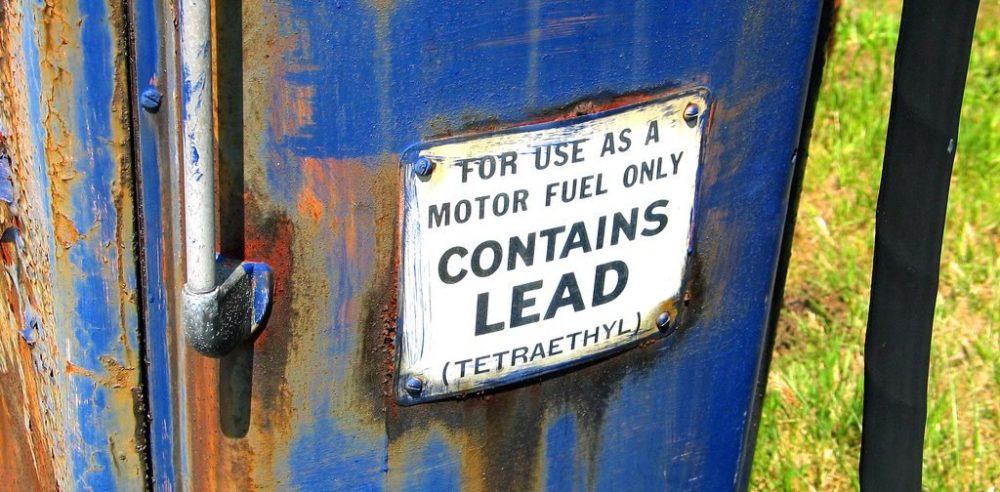Dr. Herb Needleman, a Pittsburgh pediatrician whose pioneering research into the toxic effects of lead on children led to the removal of lead from gasoline and other products, died last week at the age of 89. He was a tireless advocate for children’s health in the face of persistent attacks on his work and integrity from the lead industry. A decade ago, he showed up in my life in a pretty unexpected way.
In 2006, UCS brought scientists from to Washington, DC to talk to legislators about the manipulation and suppression of science, and the consequences that has for public health and the environment. We recruited scientists from our Sound Science Initiative, the precursor to the UCS Science Network, and from the list of experts who had signed the scientist statement on scientific integrity that called on the Bush administration to restore scientific integrity to federal policymaking.

Dr. Needleman’s research transformed our understanding of the impact of lead on children’s developing brains, and led to the removal of lead from gasoline. Photo: NIEHS
Dr. Needleman was on that list of signers. Yet we clearly hadn’t done our research. We had no idea who he was. I only knew him as a pediatrician with a low voice and large glasses.
There was a lot behind those glasses. Others have written extensively about his experiences, including in The Lead Wars and this extensive interview, better than I ever could. But briefly, Dr. Needleman conducted extremely novel research in which he collected and measured lead levels in children’s primary teeth, demonstrating a correlation between intellectual development and exposure to lead, even at low levels.
A 1979 study he published in the New England Journal of Medicine transformed the field, set the stage for restrictions on lead in gasoline, and put a target on his back.
He should have been celebrated. He was not. “He was attacked by the lead industry, hounded by columnists, snooped after by hired investigators, had his files endlessly combed over by high priced consultants, and was indifferently supported by many of his colleagues at his university,” remembered Richard Jackson, former director of the CDC’s National Center for Environmental Health.
For years, the lead industry and affiliated individuals did their best to tarnish his reputation and take him down through unfounded allegations of scientific misconduct. At times, he could not even depend on his university to play fair. Via The Lead Wars:
The attacks on Needleman’s research and on his scientific integrity culminated in 1991 when Claire Ernhart and Sandra Scarr filed charged with the Office of Scientific Integrity at the National Institutes of Health, alleging that Needleman had engaged in scientific misconduct…They demanded, and received, another inquiry, which led to Needleman’s own university, the University of Pittsburgh, to begin another investigation of his research. It was a ‘horrible’ period in his life, Needleman recalls. The university refused to allow him to bring in outside experts, though it called on others who had previous professional relationships with his accusers. The university initially refuse to open the hearings to the public; it took a petition campaign from scientists around the country to persuade the campus officials otherwise. He was shunned by colleagues who worried about being associated with him. But in 1992, despite some methodological criticisms, Needleman was vindicated of wrongdoing by the university and, similarly, three years later by the office of Research Integrity of the Department of Health and Human Services.”
Dr. Needleman, ever determined and courageous, emerged from these battles with his professional reputation intact. And eventually, he ended up in a UCS conference room. Here was a man who had testified before Congress, been attacked repeatedly in multiple venues, and seen the way that science is politicized at the expense of children. A titan. He could have trained us. Yet he came to Washington DC and patiently listened to our basic explanations of how the Bush administration was manipulating and suppressing science, and how we needed to educate Congress about the importance of providing oversight.

Dr. Needleman at a 1991 congressional hearing. Photo: C-SPAN
It turned out that I was assigned to accompany Dr. Needleman and other scientists to meet with lawmakers. In each meeting, when it was his turn, he spoke softly but firmly about how as a doctor he relied on the government to provide guidance about the safety and efficacy of drugs. He talked about the importance of protecting children from harmful contaminants, and about how he had witnessed the consequences of politics getting in the way of protecting children from lead poisoning in his earlier years.
Not once did he discuss his pivotal role in keeping millions of children—including me—safe. He didn’t want to take over the show. He wanted the story to be about public health and the environment.
It was months later when I came across his name while doing some research. The more I read, the more foolish I felt for not recognizing the legend among us. Yet I also felt honored to have had the opportunity to cross paths. And I felt thankful that such an accomplished man was still committed to fighting for what was right.
I often refer to Dr. Needleman in talks to help make the point that political and industry pressure on scientists is not new, and that many have pushed alternative facts for years to further narrow agendas at the public’s expense. I hope that people will continue to study his life and remember that we can persevere in the face of extremely powerful interests to make the lives of others better.

